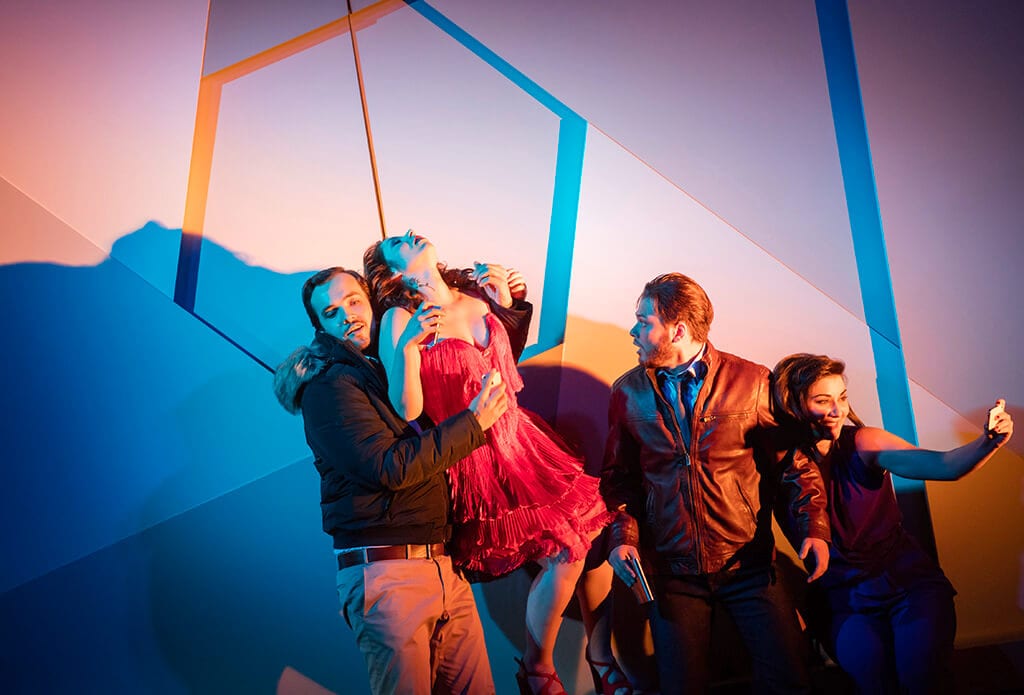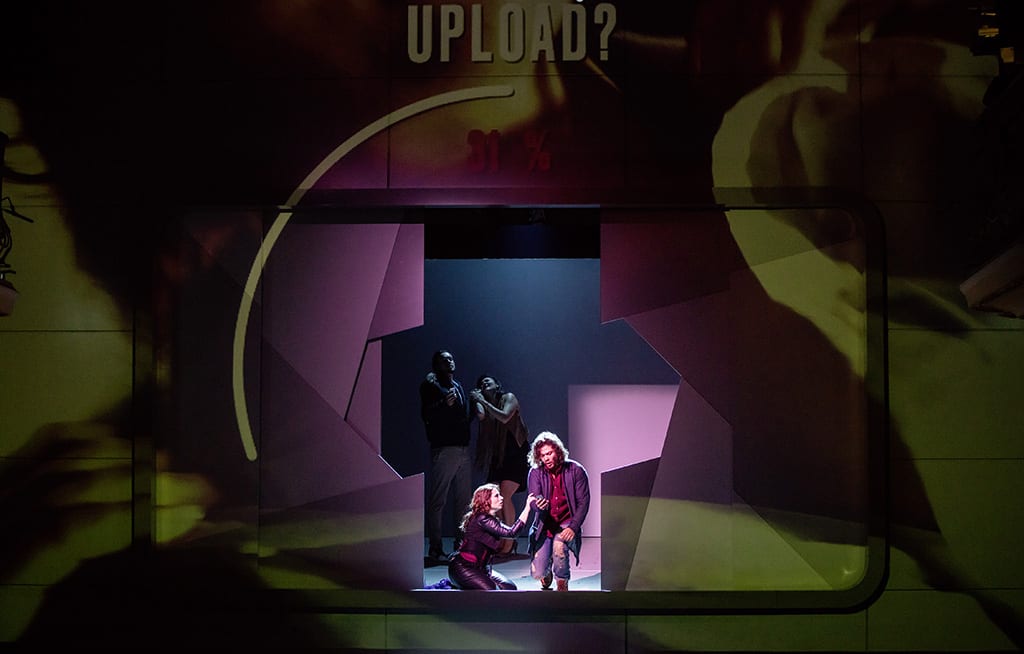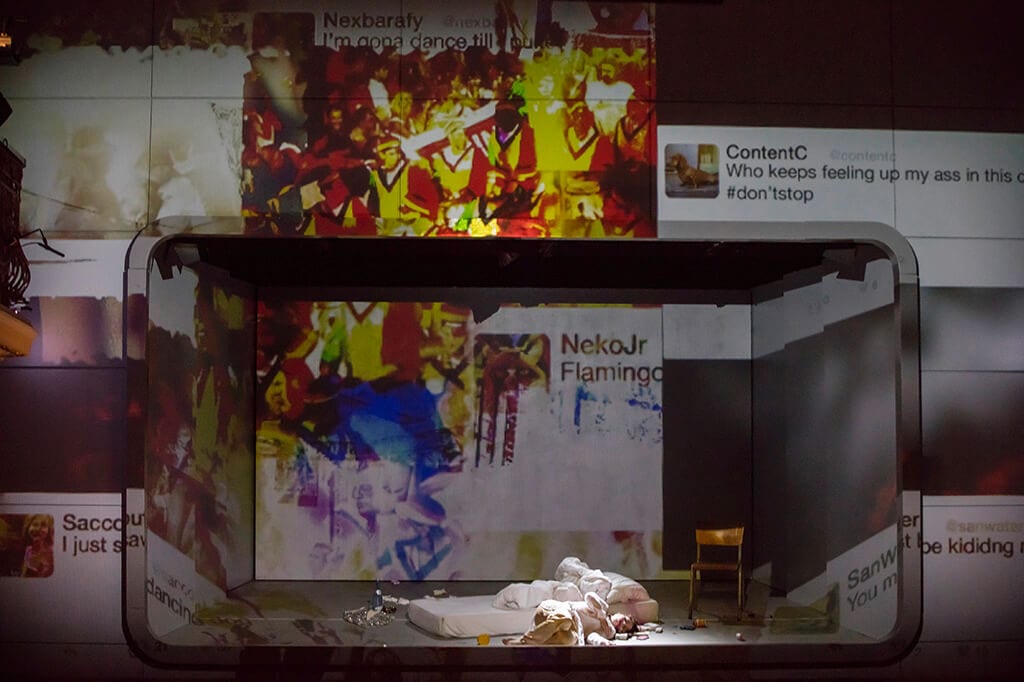The story of a fatally ill prostitute, burned by the self-interest of others when she pursues real love, was uncommonly contemporary when Verdi’s La Traviata first reached the stage. Director Lotte de Beer’s compressed reworking of La Traviata shifts the story forward to the 21st century, with pleasure-seeking taken to the level of a narcissistic addiction to digital self-representation. Everyone is plagued by the impulse to record everything they do and to manipulate and share those images. Violetta cannot deny the abundant evidence of her sordid lifestyle as it reaches the press, and slips easily back into a self-medicating lifestyle of booze and drugs. Alfredo’s brother (instead of father) easily points her on this path. Alfredo too spirals wildly out of control, and is a mess by the time he arrives at Flora’s party. The real obstacle to love in this update is the vanishing ability to communicate directly and meaningfully with one another in the here and now. During Violetta’s dying moments Alfredo, by now cleaned up and coolly disaffected, stares obsessively at her cell phone, at an old photo of her during better times.
The production features an intensely coordinated and committed quintet of singers. Vocally, they don’t always have an easy time. Snatches and extended stretches of Verdi’s music and text remain, all extensively re-orchestrated and re-harmonized by Jacopo Salvatori and Moritz Eggert. The Berlin-based artist collective Gebrüder Teichmann helped shape the electric dimensions of the music (including electric guitar and bass, and synthesizer), which often highlight Violetta’s weak grasp of simple reality and precarious health. Kalle Kuusava did his best to balance these forces with those of the Wiener Kammerorchester in the small theatre. Some of the more effective passages of the score involve only slight intervention, and leave the register of the singers’ melodies uncluttered. “Un dì, felice, eterea” allows Julian Henao Gonzalez (Alfredo) and Frederikke Kampmann (Violetta) to fully share their generous, lyrical instruments. Also dramatically and musically effective is the extended scene with Alfredo’s brother Giorgio, sung compellingly by Matteo Loi. He’s an offensive figure for sure, making the moves on Violetta as he repeatedly demeans her.
In this strikingly pessimistic account of Violetta and our modern social-media saturated world, the music often caricatures or negatively undercuts emotional expressivity. Passages of accordion accompaniment lend a sort of pathetic nostalgia here and there, while low brass accents and some of the handling of Verdi’s admittedly oom-pah-pah accompaniments tend to sound like circus music. Eggert wanted to etch his score with irony and achieve a kind of stylistic variety atypical of Verdi’s time, but it feels at times heavy-handed. The sets and lighting of design team Clement and Sanôu, video designs of Finn Ross, and de Beer’s stagecraft are on stronger footing throughout. An aperture within a cell phone frame reveals the small interior stage that tightly focuses the action, with Anna Marshaniya and Florian Köfler admirably taking up various roles to flesh out the tale.




